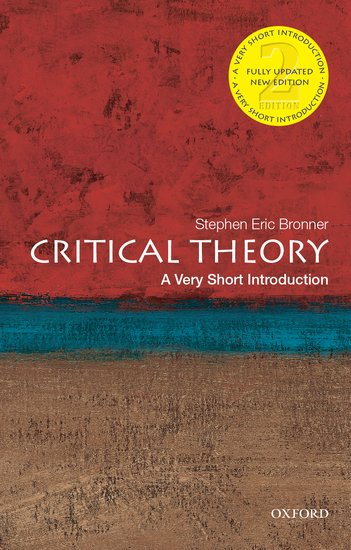Home >
A Very Short Introduction >
Beauty (Philosophy)
A Very Short Introduction | Philosophy
Beauty
ISBN: 9780190692674
Series: A Very Short Introduction
Beauty (Philosophy)
A Very Short Introduction Beauty (Philosophy) Media > Books > Non-Fiction > Education Books Expect Delays of Up to 4 Weeks| Order Below |
ISBN
9780190692674 (10-digit ISBN: 0190692677)
- Description
- Key Features
- Series Description
- Table of Contents
- Examines the answers to key questions in aesthetics, such as: What is beauty? Why do we value it? Is beauty good?
- Asks whether beauty is vanishing from our world
- This is a strongly-argued counter to the notion that judgements of beauty are purely subjective and relative, and that we can learn little from art criticism and study
- Looks at beauty in the visual arts, in music, architecture, nature, and literature
- Argues that our experience of beauty is rationally founded, and that beauty is a real and universal value. Scruton shows how our sense of beauty has an indispensable part to play in the way we shape our world
Beauty can be consoling, disturbing, sacred, profane; it can be exhilarating, appealing, inspiring, chilling. It can affect us in an unlimited variety of ways. Yet it is never viewed with indifference. In this Very Short Introduction the renowned philosopher Roger Scruton explores the concept of beauty, asking what makes an object - either in art, in nature, or the human form - beautiful, and examining how we can compare differing judgements of beauty when it is evident all around us that our tastes vary so widely. Is there a right judgement to be made about beauty? Is it right to say there is more beauty in a classical temple than a concrete office block, more in a Rembrandt than in last year's Turner Prize winner? Forthright and thought-provoking, and as accessible as it is intellectually rigorous, this introduction to the philosophy of beauty draws conclusions that some may find controversial, but, as Scruton shows, help us to find greater sense of meaning in the beautiful objects that fill our lives.
Oxford's Very Short Introductions series offers concise and original introductions to a wide range of subjects--from Islam to Sociology, Politics to Classics, Literary Theory to History, and Archaeology to the Bible.
Not simply a textbook of definitions, each volume in this series provides trenchant and provocative--yet always balanced and complete--discussions of the central issues in a given discipline or field. Every Very Short Introduction gives a readable evolution of the subject in question, demonstrating how the subject has developed and how it has influenced society. Eventually, the series will encompass every major academic discipline, offering all students an accessible and abundant reference library.
Whatever the area of study that one deems important or appealing, whatever the topic that fascinates the general reader, the Very Short Introductions series has a handy and affordable guide that will likely prove indispensable.
Please note: As this series is not ELT material, these titles are not subject to discount.
Preface
1: Judging beauty
2: Human beauty
3: Natural beauty
4: Everyday beauty
5: Artistic beauty
6: Taste and order
7: Art and Eros
8: The flight from beauty
9: Concluding thoughts
Notes and Further Reading
Beauty can be consoling, disturbing, sacred, profane; it can be exhilarating, appealing, inspiring, chilling. It can affect us in an unlimited variety of ways. Yet it is never viewed with indifference. In this Very Short Introduction the renowned philosopher Roger Scruton explores the concept of beauty, asking what makes an object - either in art, in nature, or the human form - beautiful, and examining how we can compare differing judgements of beauty when it is evident all around us that our tastes vary so widely. Is there a right judgement to be made about beauty? Is it right to say there is more beauty in a classical temple than a concrete office block, more in a Rembrandt than in last year's Turner Prize winner? Forthright and thought-provoking, and as accessible as it is intellectually rigorous, this introduction to the philosophy of beauty draws conclusions that some may find controversial, but, as Scruton shows, help us to find greater sense of meaning in the beautiful objects that fill our lives.
Key Features
- Examines the answers to key questions in aesthetics, such as: What is beauty? Why do we value it? Is beauty good?
- Asks whether beauty is vanishing from our world
- This is a strongly-argued counter to the notion that judgements of beauty are purely subjective and relative, and that we can learn little from art criticism and study
- Looks at beauty in the visual arts, in music, architecture, nature, and literature
- Argues that our experience of beauty is rationally founded, and that beauty is a real and universal value. Scruton shows how our sense of beauty has an indispensable part to play in the way we shape our world
Series Description
Oxford's Very Short Introductions series offers concise and original introductions to a wide range of subjects--from Islam to Sociology, Politics to Classics, Literary Theory to History, and Archaeology to the Bible.
Not simply a textbook of definitions, each volume in this series provides trenchant and provocative--yet always balanced and complete--discussions of the central issues in a given discipline or field. Every Very Short Introduction gives a readable evolution of the subject in question, demonstrating how the subject has developed and how it has influenced society. Eventually, the series will encompass every major academic discipline, offering all students an accessible and abundant reference library.
Whatever the area of study that one deems important or appealing, whatever the topic that fascinates the general reader, the Very Short Introductions series has a handy and affordable guide that will likely prove indispensable.
Please note: As this series is not ELT material, these titles are not subject to discount.
EASY ORDER FORM
PRICES LISTED INCLUDE CONSUMPTION TAX
Price Before Tax:
¥1,790


